Super excited that APSA is funding my dissertation research!
15.10.2025 21:13 — 👍 4 🔁 0 💬 0 📌 0Benjamin Krick
@benckrick.bsky.social
Duke University PhD Candidate studying Security, Peace, and Conflict (IR); forced migration, civil conflict, etc.
@benckrick.bsky.social
Duke University PhD Candidate studying Security, Peace, and Conflict (IR); forced migration, civil conflict, etc.
Super excited that APSA is funding my dissertation research!
15.10.2025 21:13 — 👍 4 🔁 0 💬 0 📌 0
If you want something in political science “Voting for Autocracy” by Beatriz Magolini is great! www.cambridge.org/core/books/v...
08.10.2025 14:10 — 👍 1 🔁 0 💬 1 📌 0Our article on civilian harm and military legitimacy is now available at @iojournal.bsky.social. We believe it has timely implications for events playing out now in the Middle East and beyond.
From North Carolina to Northern Iraq, working with Jon and Mara has been a truly rewarding experience!
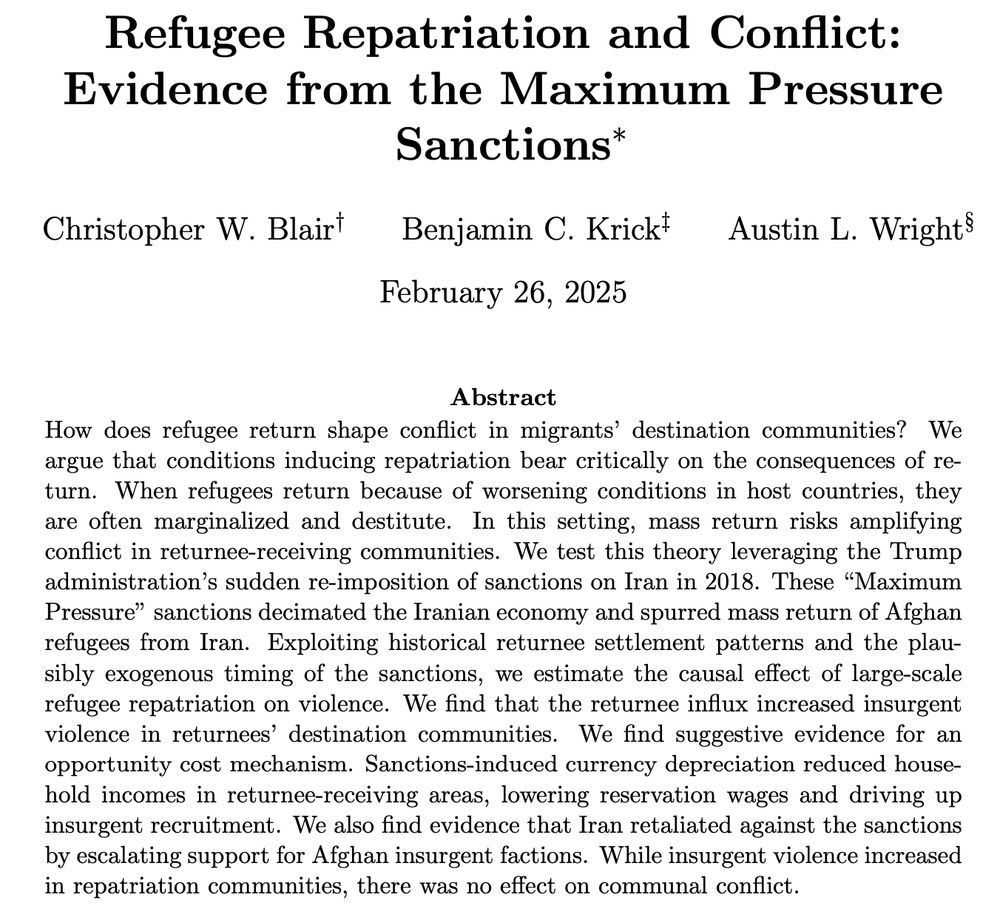
Title: Refugee Repatriation and Conflict: Evidence from the Maximum Pressure Sanctions Abstract: How does refugee return shape conflict in migrants’ destination communities? We argue that conditions inducing repatriation bear critically on the consequences of return. When refugees return because of worsening conditions in host countries, they are often marginalized and destitute. In this setting, mass return risks amplifying conflict in returnee-receiving communities. We test this theory leveraging the Trump administration’s sudden re-imposition of sanctions on Iran in 2018. These “Maximum Pressure” sanctions decimated the Iranian economy and spurred mass return of Afghan refugees from Iran. Exploiting historical returnee settlement patterns and the plausibly exogenous timing of the sanctions, we estimate the causal effect of large-scale refugee repatriation on violence. We find that the returnee influx increased insurgent violence in returnees’ destination communities. We find suggestive evidence for an opportunity cost mechanism. Sanctions-induced currency depreciation reduced household incomes in returnee-receiving areas, lowering reservation wages and driving up insurgent recruitment. We also find evidence that Iran retaliated against the sanctions by escalating support for Afghan insurgent factions. While insurgent violence increased in repatriation communities, there was no effect on communal conflict.
🚨🚨🚨🚨 New WP (with @benckrick.bsky.social @austinlw.bsky.social) available at the ESOC working paper series:
esoc.princeton.edu/wp39

The return and reintegration of Iraqis with perceived ISIL affiliation is crucial for post-conflict peacebuilding and stabilization.
However, these returnees face steep social and economic barriers, @mararevkin.bsky.social @benckrick.bsky.social & Dr. Raed Aldulaimi find in their UNIDIR report⬇️
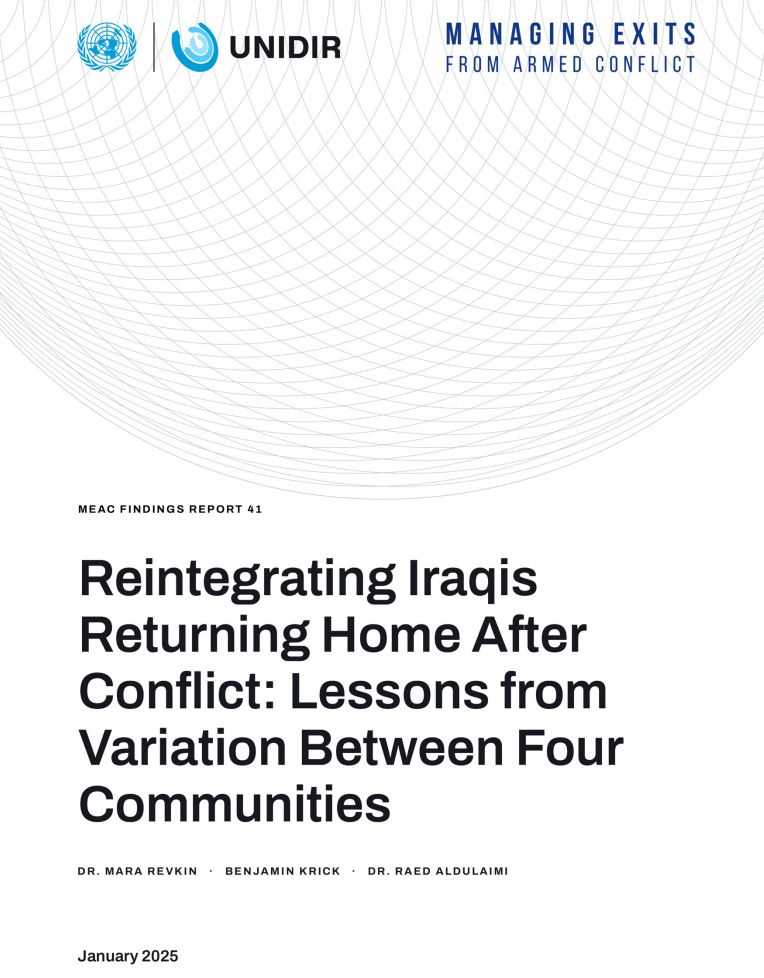
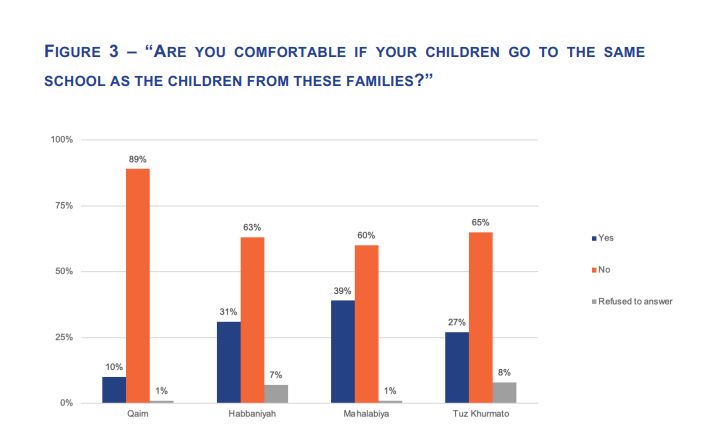
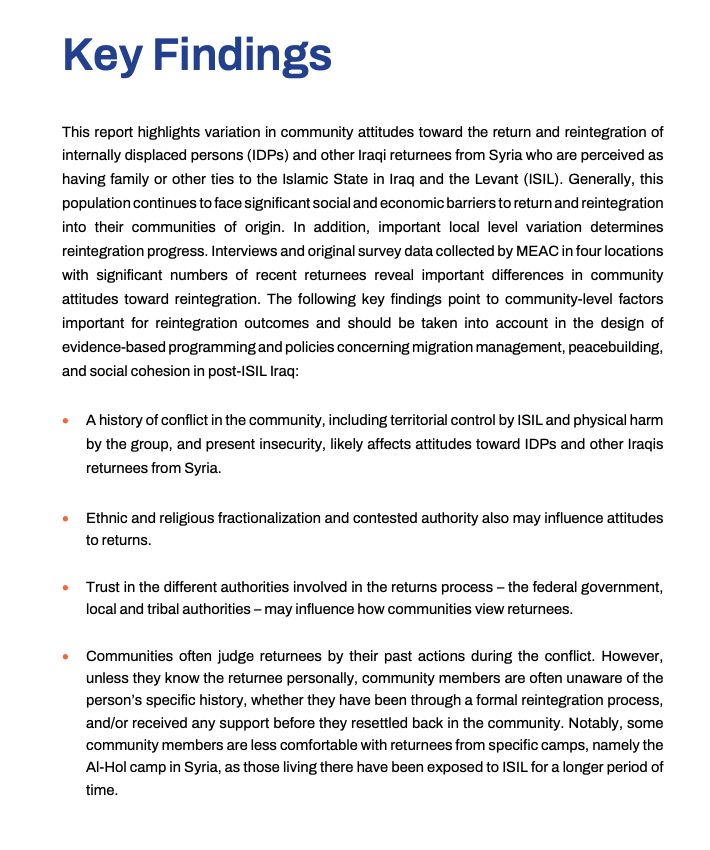
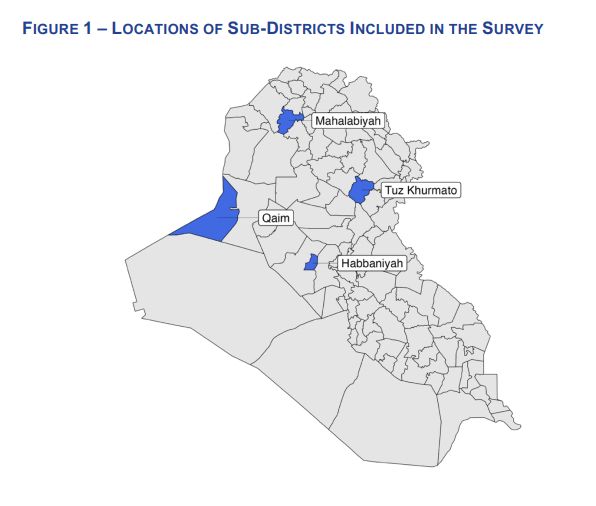
New report by me, @benckrick.bsky.social & Dr. Raed al-Dulaimi for UNIDIR on attitudes toward Iraqis with perceived ties to ISIL based on original survey data and interviews. We find that stigmatization persists 8 years after ISIL's territorial defeat, even of children: unidir.org/publication/...
08.01.2025 23:54 — 👍 13 🔁 10 💬 0 📌 0Congrats! Very excited to read it.
03.04.2024 11:52 — 👍 2 🔁 0 💬 0 📌 0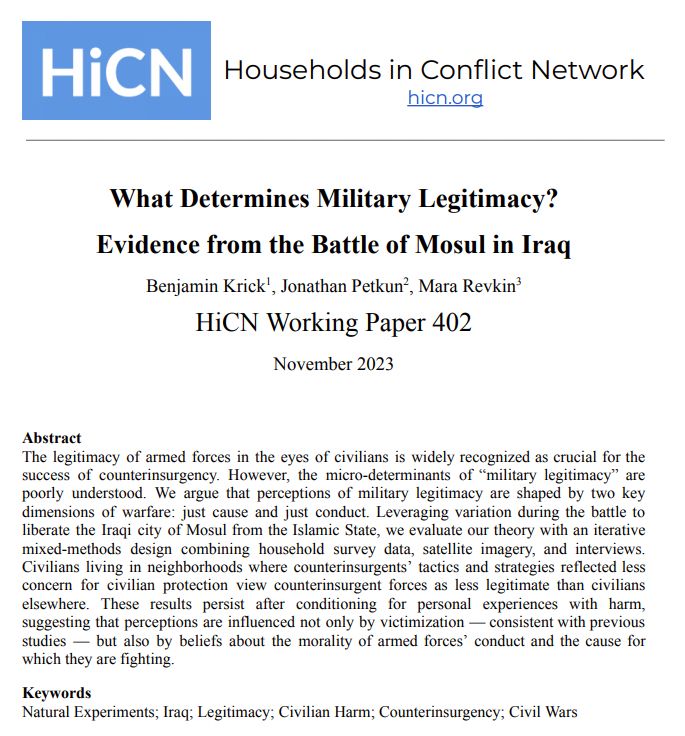
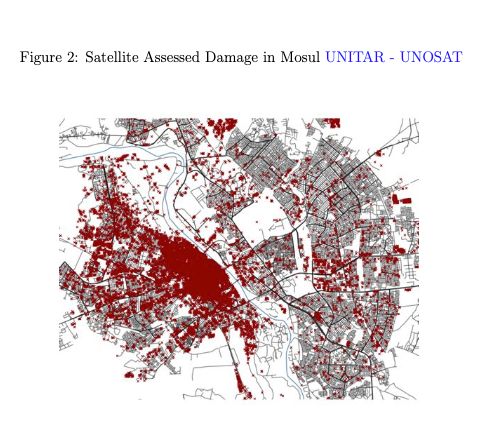
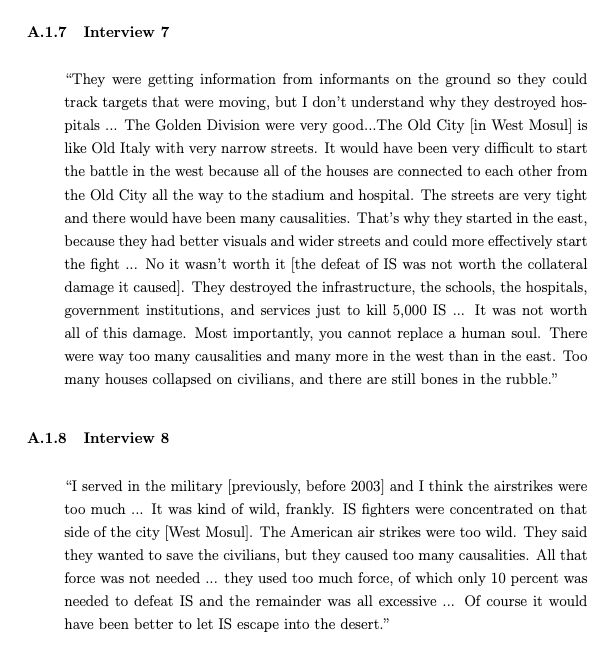
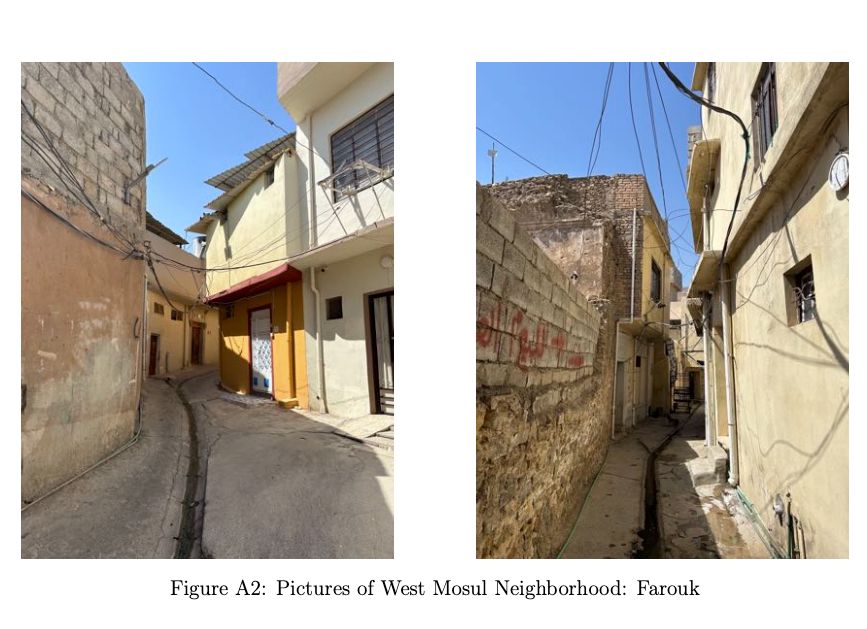
My new working paper with @benckrick.bsky.social & @jonpetkun.bsky.social on the relationship between civilian harm and perceptions of military legitimacy after the battle of Mosul in Iraq based on survey, satellite, and interview data for the Households in Conflict Network: hicn.org/working-pape...
21.11.2023 19:07 — 👍 31 🔁 12 💬 0 📌 2